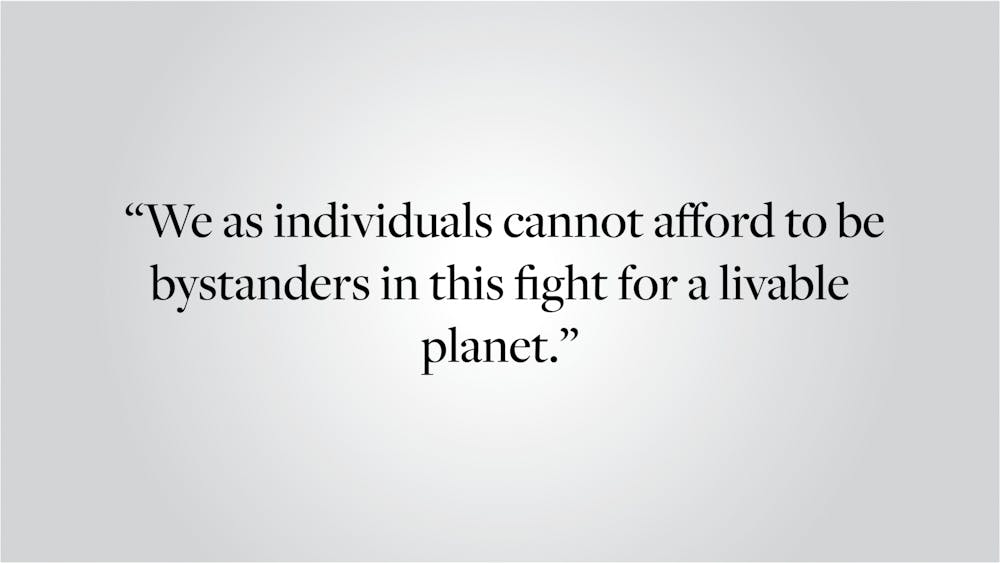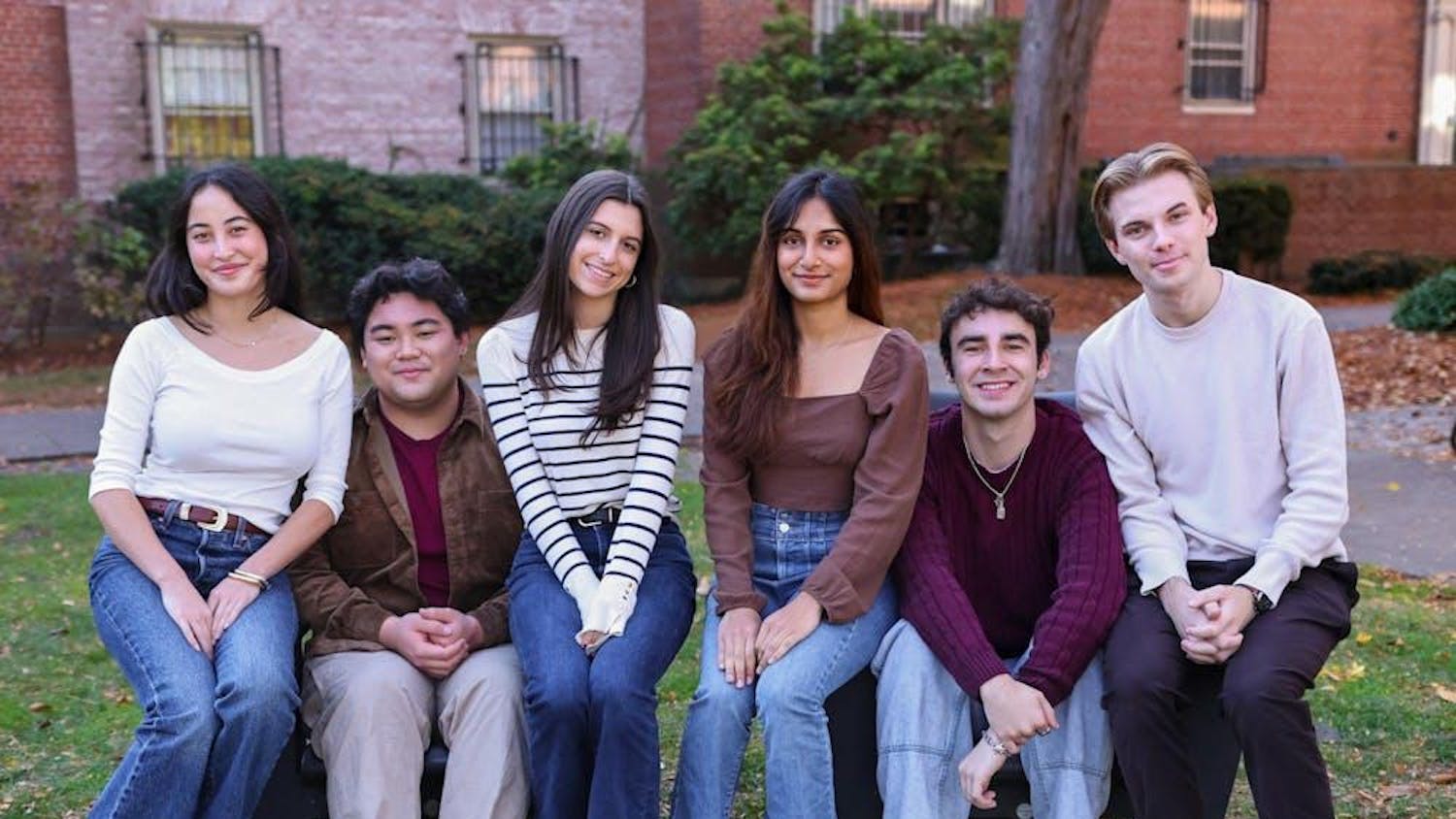In July 2017, I co-founded Zero Hour, a global, youth-led climate justice organization mobilizing for a livable planet while working to dismantle the systems of oppression at the root of the climate crisis: colonialism, capitalism, racism and patriarchy. In the summer before my first semester at Brown, activists launched a movement for youth-led climate justice around the world, which later helped inspire Greta Thunberg to strike outside the Swedish Parliament and found Fridays For Future. While the COVID-19 pandemic upended climate justice activism around the world, even fracturing organizing efforts here on Brown’s campus, our movement grows ever-stronger today. Throughout the turmoil, the Green New Deal — a whole-of-government approach to tackling climate change — became an important issue in the 2020 presidential election and may prove to be a litmus test for Democrats in the 2022 midterm elections. Mass mobilization for the Green New Deal gives us our best chance to ensure a habitable, just planet for future generations.
The Green New Deal is a Congressional resolution that recognizes that the United States has historically been responsible for a fifth of all greenhouse gas emissions and thus resolves that it is the federal government’s responsibility to make a number of emissions reductions measures law. If it were to become a federal program, the Green New Deal would aim to achieve greenhouse gas emission reductions on track with limiting warming to 1.5 degrees Celsius above pre-industrial levels and create millions of high-wage union jobs. Furthermore, it would commit to securing clean air and water, climate and community resilience, healthy food, access to nature and a sustainable environment for future generations.
Climate justice recognizes that marginalized groups — for example, Black, brown and Indigenous communities, people with disabilities and low-income people — are more impacted by climate change. Certain marginalized groups face disproportionately high exposure to contaminated air and water, while also being more likely to be harmed by climate disasters like wildfires, hurricanes, monsoons and heat waves. The Green New Deal acknowledges how identity intersects with climate change, vowing to “promote justice and equity by stopping current, preventing future and repairing historic oppression of Indigenous peoples, communities of color, migrant communities, deindustrialized communities, depopulated rural communities, the poor, low-income workers, women, the elderly, the unhoused, people with disabilities and youth.” In short, the Green New Deal is serious about climate justice.
Opponents have called it radical, but there should be nothing radical about eliminating greenhouse gas emissions to ensure a habitable planet for future generations, creating union jobs and combating structural inequities perpetuated by climate change. A number of social and environmental organizations, including Zero Hour, the Sunrise Movement, Black Lives Matter and March for Our Lives, have thus called on members of Congress and congressional candidates to become Green New Deal “champions” by co-sponsoring bills that would encode the Green New Deal into law.
For the first time, we have a set of bills that have been introduced in Congress that would tangibly establish the vision of a Green New Deal if passed. For decades, the environmental movement has organized for climate action, and we now have an established group of elected leaders who are committed to climate justice and have the power to negotiate policy in the halls of Congress. But we cannot just entrust this work to elected officials: To secure a habitable planet, we all must engage in politics in a way that we never have before. Achieving a just transition to renewable energy will take all of us. It is not enough to be a passive supporter of climate science and climate action. The movement needs you to get involved. Call your representatives, mobilize in the streets, register your peers to vote, sign petitions and learn and talk about climate change and sustainability. Climate change is here, and its impacts are all around us.
Persistent climate change apathy — the idea that many citizens are unwilling to accept the sacrifices that come with addressing climate change — underscores the importance of popular involvement in climate justice activism. In March 2022, I joined the 2041 ClimateForce expedition to Antarctica to join a global team of climate leaders and witness the effects of the climate crisis firsthand. During our voyage along the Antarctic Peninsula in western Antarctica, we received news of the Conger ice shelf collapse and the record heat wave that swept across the eastern side of the continent. But despite evidence of climate change all around the world, Congress continues to subsidize the fossil fuel industry using upwards of $20 billion in tax money annually. These subsidies are especially egregious considering the industry’s continued violations of Indigenous sovereignty and the staggering profits that companies like Exxon Mobil and Chevron have enjoyed recently. And amid the worldwide spike in gas prices, members of Congress pressed fossil fuel executives to increase production in a congressional hearing about price gouging by Big Oil earlier this month. Rather than holding the industry accountable for profiteering or calling for the rapid rollout of renewable energy and increased federal subsidies for electric vehicles, members of Congress are helping perpetuate fossil fuel extraction.
Even President Joe Biden has failed to address climate change using every tool at the administration’s disposal. Despite promising no new fossil fuel leasing, he allowed the largest fossil fuel lease sale in U.S. history to move forward in the Gulf of Mexico before a federal judge intervened to block the sale, citing climate concerns. Biden is continuing to allow pipelines such as the Enbridge Line 3 and Line 5 pipelines to transport tar sands oil, as well as opposing the Dakota Access Pipeline shutdown despite strong opposition from Indigenous peoples and the climate movement.
Now is the time to challenge Big Oil, complicit elected leaders, businesses continuing to pursue profit over people and planet and major financial institutions that bankroll fossil fuel expansion. Climate change is a systemic problem that requires systemic solutions. Although institutions and deeply rooted systems of oppression are to blame, we as individuals cannot afford to be bystanders in this fight for a livable planet. Your voice and your vote are powerful, so use them. Together, we can elect Green New Deal Champions, mobilize private industry toward a circular economy and finally win climate justice for marginalized communities that have been on the receiving end of systems of oppression for generations. I’m ready to mobilize with you.
Zanagee Artis ’22 can be reached at zanagee_artis@brown.edu. Artis is the co-founder, executive director and policy director of Zero Hour. He is also the co-author of “A Kids Book About Climate Change” and a co-host of “1 Point 5: A Kids Podcast About Climate Justice.” Please send responses to this opinion to letters@browndailyherald.com and other op-eds to opinions@browndailyherald.com.





